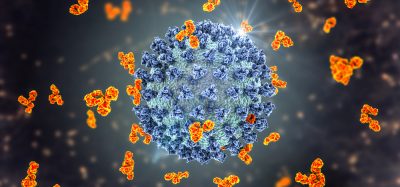BCG vaccine protects newborns against a variety of infectious diseases, finds study
Posted: 18 February 2021 | Hannah Balfour (European Pharmaceutical Review) | No comments yet
According to researchers, ensuring that newborns in areas with high rates of infectious disease receive the BCG vaccine at birth, could have a major impact on infections and deaths.


A new study suggests, if given at birth, the Bacillus Calmette-Guerin (BCG) tuberculosis (TB) vaccine could protect newborns against a variety of common infections, such as upper respiratory tract infections, chest infections and diarrhoea, potentially saving thousands of lives a year.
According to the team, this is the first research to rigorously investigate the full range of illnesses BCG could protect infants against. It suggests that vaccinating all babies on the day of birth with BCG could reduce neonatal infections and death in areas with high infectious disease rates, potentially saving thousands of lives a year. The results also increase the possibility that the vaccine might be used to protect children and adults against COVID-19 and other new infectious diseases.
The investigator-blind, randomised, controlled trial undertaken at a hospital in Entebbe, Uganda, enrolled 560 healthy participants and randomly assigned them 1:1 to receive BCG at birth or age six weeks. Participants were followed for a 10-week period after birth.
According to the investigators, during the first six weeks of life – before the infants in the delayed vaccination group received BCG vaccination – physician-diagnosed non-tuberculous infectious disease incidence was approximately 25 percent lower in infants in the BCG at birth group than in the delayed group (98 presentations in the BCG at birth group versus 129 in the delayed BCG group).
After BCG in the delayed group (ie, between six and 10 weeks of age), there was no significant difference in non-tuberculous infectious disease incidence between the groups (88 presentations in BCG group versus 76 in delayed).
Importantly, the team stated that vulnerable groups such as low birth weight babies and boys seemed to be protected the most. In addition, they reported that BCG appeared to safeguard against various types and severities of infections – from mild to severe, common cold to chest and skin infections.
Sarah Prentice, lead author from the London School of Hygiene & Tropical Medicine (LSHTM), UK commented: “Nearly a million babies die every year of common infections, so we urgently need better ways to protect them. Our research suggests that ensuring that BCG is given at birth could make a big difference in low-income countries, potentially saving many lives.”
Hazel Dockrell, Professor of Immunology at LSHTM and one of the co-authors of the study,added: “It is very exciting to think that BCG vaccination might help keep newborns safe against other dangerous infections, in addition to providing protection against TB. Although BCG is recommended at birth in many countries, it is often delayed due to logistical difficulties. Ensuring that the vaccine is given on day one, in areas with high rates of infectious disease, could have a major impact on infections and deaths in the newborn period.”
The team could not definitively say why BCG offered this additional non-specific protection, but analysed blood samples from the participants showed evidence of changes in the innate immune system of vaccinated infants, which may suggest that BCG boosts the immune system to work better against any infection.
As a result of this finding, the team suggested that BCG could be used to provide protection in the early stages of novel outbreaks, such as COVID-19 or Ebola, before specific vaccines have been developed. Further studies are already underway to explore whether BCG could play a role in the response to COVID-19, with large trials involving health care workers and the elderly.
The researchers also believe it is worth investigating whether reintroduction of BCG in countries where it is no longer in routine use, such as the UK, is beneficial, not for its effects against TB, but to protect vulnerable infants in neonatal units against other infections.
The authors acknowledge limitations of their study, including that it was relatively small and that they were unable to show the effect of BCG on numbers of deaths from infections. Also, because the study was only conducted in Uganda, the team said they cannot be certain that these beneficial effects of BCG would be seen in other settings, but added that other studies conducted in West Africa have shown a reduction in neonatal deaths following BCG at birth, to a similar extent as the reduction in infection rates seen in this study.
The study was published in The Lancet Infectious Diseases.









